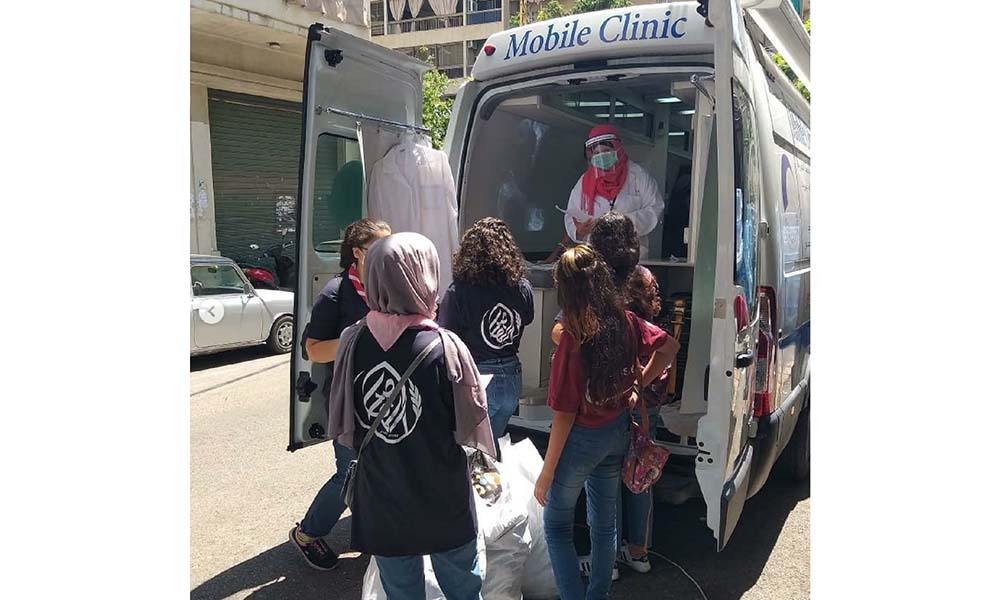Following the unprecedented circumstances that Lebanon has been through, the best words to summarize Al Makassed’s experience is its 2018-2020 Achievement’s report title “Beyond Crisis: Resilience and Perseverance”, “زمن التحولات: مسيرة صمود و إنماء”.
Since 1878, Al Makassed Philanthropic Organization has operated in the healthcare, education, and social aid sectors in the most impoverished areas of Beirut. Our experience during the economic crisis, Covid-19, and Port of Beirut Blast can be categorized under internal and external factors.
All crises combined impacted the healthcare, education, and social aid sector. The hospital experienced a shortage in medical supplies, medical equipment, human capital, (where nurses and physicians have emigrated chasing economically and securely stable countries), and financial capital (where patients defaulted on paying their fees). A shortage in raw materials (food parcels, clothing, medication), the total lockdown, and the hike in demand for all sorts of support impacted social aid’s operations and kits’ distribution (food, hygiene kits, clothing, education, healthcare, money). The education sector was impacted by families that were no longer able to settle their tuition fees, the absence of reliable infrastructure that aids online learning (internet and electricity), and the difficulty to provide laptops for students and tutors alike. Finally, the Beirut Blast caused severe damage to the organization’s physical assets (school, university, hospital) making the rehabilitation cost exorbitant under currency devaluation and economic depression.
Local and international donors’ support in financial and in-kind donations and the support Al Makassed has from the community helped it get through tough circumstances. Internal resources such as a dormant Crisis Unit helped navigate this time of uncertainty and emergency. Primary Healthcare Centers (PHCC), mobile clinics, the Makassed General Hospital (MGH) helped provide emergency medical care during the blast and all across the Lebanese territory through coordination and referral. The preparedness of the Education Department on digital transformation and the adaptation of programs to online education allowed a fast shift to online learning. The presence of a Social Aid Center (that entails an industrial kitchen and sewing atelier) and a Social Support Database provided warm meals, food parcels, clothing, and PPEs since March 2020. Finally, a solid network of scouts and volunteers allowed fast mobilization and wider reach under all circumstances.
These crises showed the need for collaboration between NGOs to avoid duplication in effort and food parcels’ distribution, where some households received aid from multiple sources, while others were left with nothing. Financial support was and is extremely needed, in the realm of a deteriorated security, economic, and healthcare situation, to curb the impact of currency devaluation, the growing number of impoverished families, and poverty pockets’ concentration (need to access healthcare, education, food, and hygiene support). Finally, mental health support should be set as a priority for it has impacted the well-being, productivity, and communication of involved stakeholders and their surroundings.



